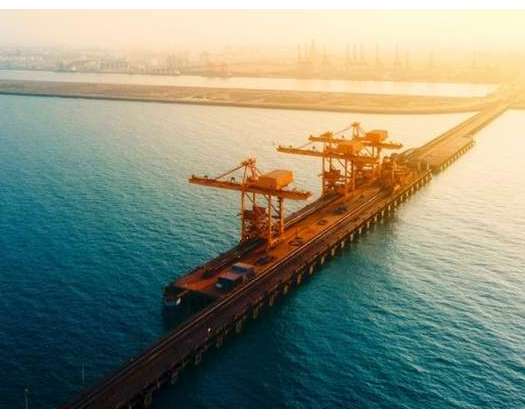Muscat: Financial analysts have emphasized that establishing negotiation frameworks that maintain countries' trade balances is essential for achieving stability in global markets, especially in light of the new tariffs introduced by US President Donald Trump.
An expert noted that Oman, being integrated into global supply chains, will feel the effects of these US tariffs. However, the overall impact is expected to be limited, as US imports of oil, gas, and refined products are exempt from these tariffs. Nonetheless, a decline in oil prices may occur due to decreased global demand and slower growth rates worldwide.
In the upcoming months, it is crucial for the Sultanate of Oman to enhance its marketing efforts to position its economy as an appealing investment hub, according to the financial expert.
The recent US tariff measures have created uncertainty in the global economy, imposing a 34 percent tariff on China, a 20 percent tariff on the European Union, and varying rates on several other nations. Additionally, a minimum tariff of 10 percent has been applied to all imports from the US across the GCC, including Oman.
Dr. Mohammed bin Hamid Al Wardi, a member of the State Council and an academic economic analyst, stated that the near future will likely see fluctuations and heightened trade negotiations, which could influence global economic growth.
He further mentioned that global markets are expected to stabilize once major economic powers come to an agreement to maintain their trade balance.
Dr. Al Wardi highlighted that the tariffs imposed by the US are likely to disrupt global trade, particularly affecting supply chains, which could result in sluggish global economic growth.
This concern was echoed by the World Trade Organization (WTO), which cautioned about the potential for a trade war and projected a contraction of global trade in goods by approximately one percent by 2025.
He noted that US tariffs will trigger additional effects related to fluctuations in the dollar and other currencies, US interest rates, and increasing inflation, which will introduce a level of uncertainty into the global economy and undermine international trade.
He emphasized that the United States intends to leverage these new tariffs to enhance its negotiating stance and maximize benefits in forthcoming discussions.
As a result, it is facilitating the possibility of negotiations. Different countries will respond to these tariffs in various ways; some may implement countermeasures, while others will adapt and work to lessen the economic repercussions.
Dr. Yousef bin Hamad Al Balushi, an economic specialist, highlighted that the main objective of the new US tariffs is to reshape the US economy to attract domestic investment and bolster the manufacturing and export sectors, thereby creating substantial opportunities within the US market.
He further stated that the effects of these tariffs will be considerable on the global economy, likely resulting in a decrease in global demand, especially from major economies like China and the European Union. This decline will subsequently affect fuel demand from these nations, leading to lower oil prices.
The introduction of new US tariffs, along with counteractions from some countries, will also influence global financial markets, causing stock exchanges worldwide to experience losses due to investor anxiety.
He pointed out that there are opportunities to enhance the Sultanate of Oman's appeal to foreign investment and alleviate its impact on the US market, as a 10 percent tariff is still more favorable compared to the higher rates imposed on numerous countries, including China and Taiwan.
Louay Bataineh, an economic expert, highlighted that the introduction of new US tariffs is anticipated to trigger various global economic effects, particularly a decline in international trade volumes. The rise in tariffs is expected to hinder the flow of goods, especially between the United States and key trading partners like China and the European Union. This situation could disrupt global supply chains, result in increased prices, inflationary pressures, and higher import expenses, ultimately leading to elevated costs for consumers.
He noted that these new tariffs will prompt a reconfiguration of supply chains across different countries and regions. Businesses may look to adjust their production processes to circumvent the tariffs, which could create opportunities for certain developing nations while undermining the positions of others reliant on exports to the United States.
Bataineh elaborated that potential global responses to the US tariffs could include retaliatory measures from other nations, potentially igniting a widespread trade war detrimental to all involved. Alternatively, there may be efforts to renegotiate and restructure trade agreements, particularly free trade pacts with the United States, as some countries might seek to negotiate lower tariffs or secure exemptions.
Additionally, he mentioned that one of the anticipated strategies to mitigate the impact of tariffs could involve countries bolstering their affected industries through stimulus initiatives or adopting internal protectionist measures. This approach may encourage many nations to enhance their regional partnerships and increase intra-bloc trade, thereby reducing their reliance on the US market.












